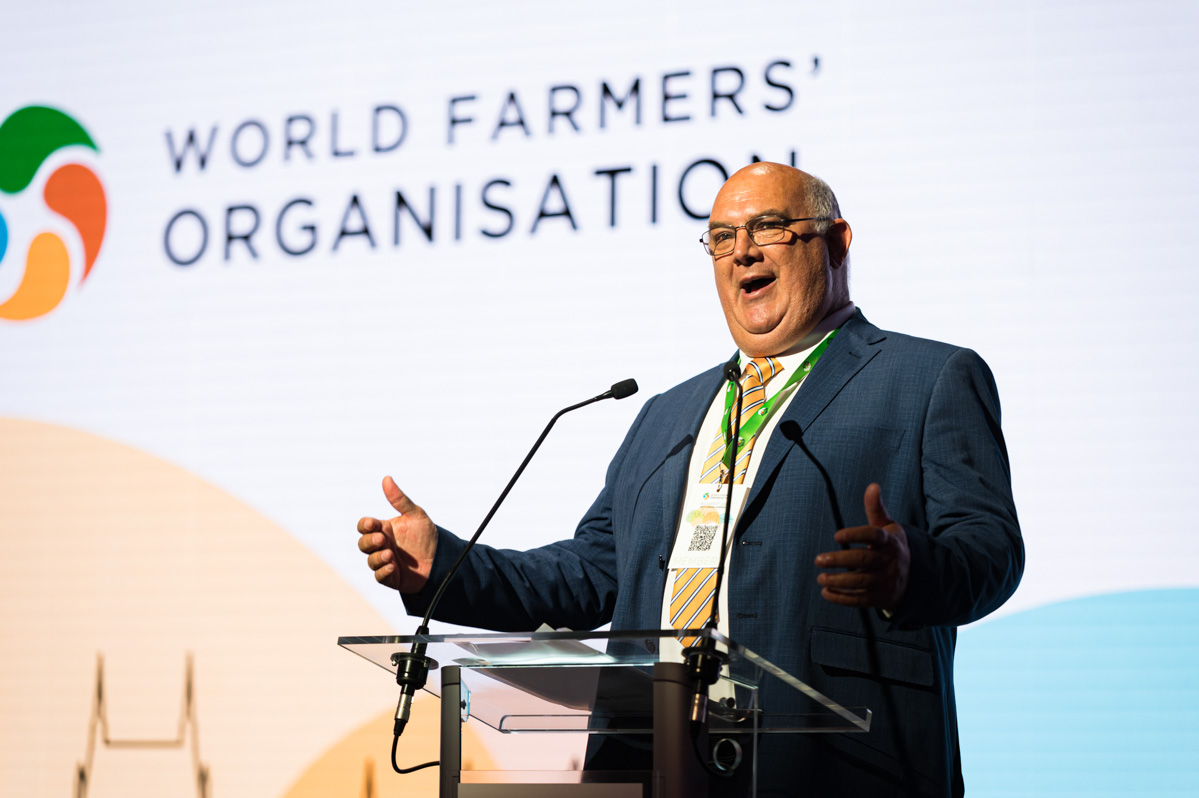Budapest, Hungary 7 June 2022 – The #WFOGA2022 opening day paved the way for a 3-days fruitful exchange between farmers’ leaders and other relevant stakeholders of the Agricultural sector, gathered in Budapest to discuss and share visions and ideas on opportunities and challenges characterising agriculture at the global level.
HERE ARE SOME HIGHLIGHTS OF THE FIRST DAY’S DISCUSSION.
Thematic session – The role of Farmers’ Organisations and Agricultural Cooperatives in the Transition to Sustainable Food Systems
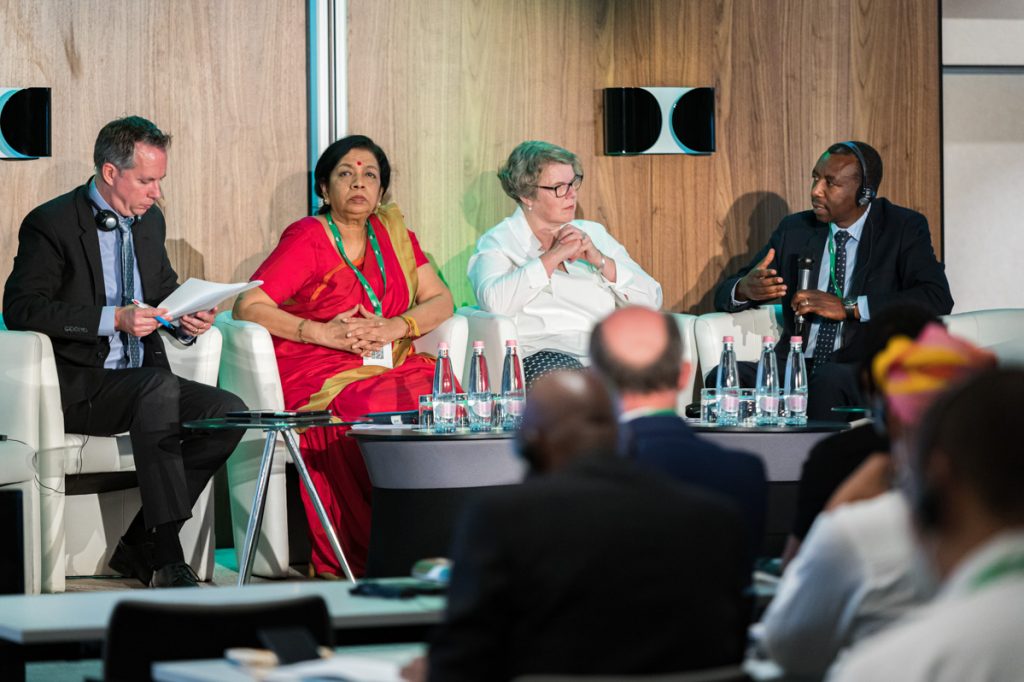
Providing nutritious and affordable food for a growing global population while preserving biodiversity and ecosystems is one of the major challenges the world is facing in the coming decade.
According to SOFI 2021, the prevalence of undernourishment increased by 1.5 percentage points in 2020, with conflicts, economic shocks, and climate change-related disasters being major drivers of food insecurity and malnutrition.
These negative trends have been exacerbated in the past two years by the COVID-19 pandemic, which caused unprecedented health, social and economic crises.
However, although the pandemic has caused troublesome effects on food systems globally, disrupting value chains and exacerbating inequalities, farmers worldwide have shown their resilience, making huge efforts to continue producing quality food in a sustainable way.
Moderated by Dimitri Houtart, BBC Rural Affairs Champion, the discussion involved farmers, as well as other relevant stakeholders, to exchange about the role of farmers and their organisations in the path towards sustainable food systems, such as Nandini Azad, President of the Indian Cooperative Network for Women (ICNW) and active member of the WFO Working Groups on Cooperatives (of which she is also the facilitator) and Women; James Jhu, Project Manager at ICDF Taiwan; Nicole Bolomey, International Director at Andreas Hermes Akademie (AHA) and Francis Mbabazi, CEO of INGABO.
Thematic Session – Women and Youth entrepreneur-centric approaches to Innovative Finance as a tool to empower the overall farming community
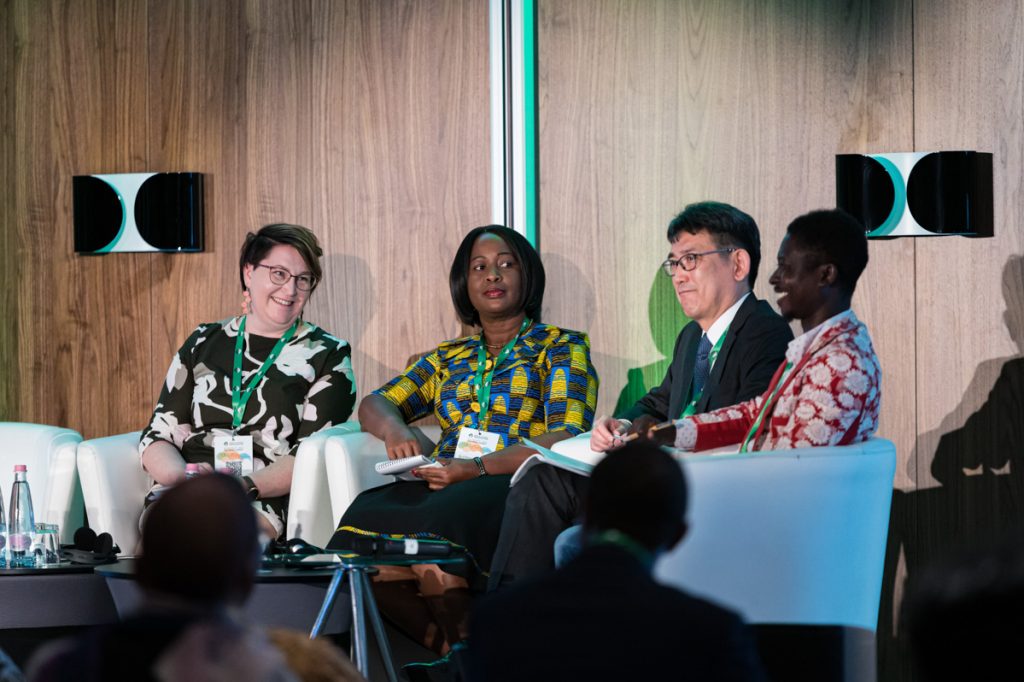
Women across the world play a crucial role within the farming sector and are the backbone of rural economies in both developed and developing Countries, playing multiple and complex roles, both at the family and community level.
However, they often face more disadvantages and barriers than men in accessing resources, being economically and mentally independent from men and social constraints, and this has a major impact on their capacity of acting as game-changers in the value chain.
The same applies to young farmers, who often face several constraints in terms of access to land, resources, opportunities, farm succession and inheritance process, and struggle to see a future within the farming sector.
Women and youth deserve to get fair and inclusive access to resources and opportunities, so to unlock their potential and play their entrepreneurial roles within the food systems at all levels.
It is key that governments, together with other public and private institutions, including financial institutions, invest in innovative financial tools for rural women and youth, which should be affordable and meet their specific needs.
The second thematic session of the day, moderated by Dimitri Houtart, BBC Rural Affairs Champion, focused on that, gathering experts from different sectors to exchange on this topic, to possibly identify best practices as well as issues to be solved.
To discuss needs and barriers of young farmers and women farmers, we invited estimated representatives of both, from different corners of the world, such as Kati Partanen, Facilitator of the WFO Women Committee; Benjamin Obeng, Vice President of COFAG; Hirofumi Kobayashi, Executive Director at IDACA; Tamisha Lee, President of the Jamaica Network of Rural Women Producers; Betty Chinyamunyamu, NASFAM President, and Peter Oksen, Senior Programme Officer at the Climate Change & Food Security WIPO, who joined the panel virtually.
Thematic Session – Innovative Solutions and Business Models to Enable a Farmer-driven Digital Transformation of Agriculture
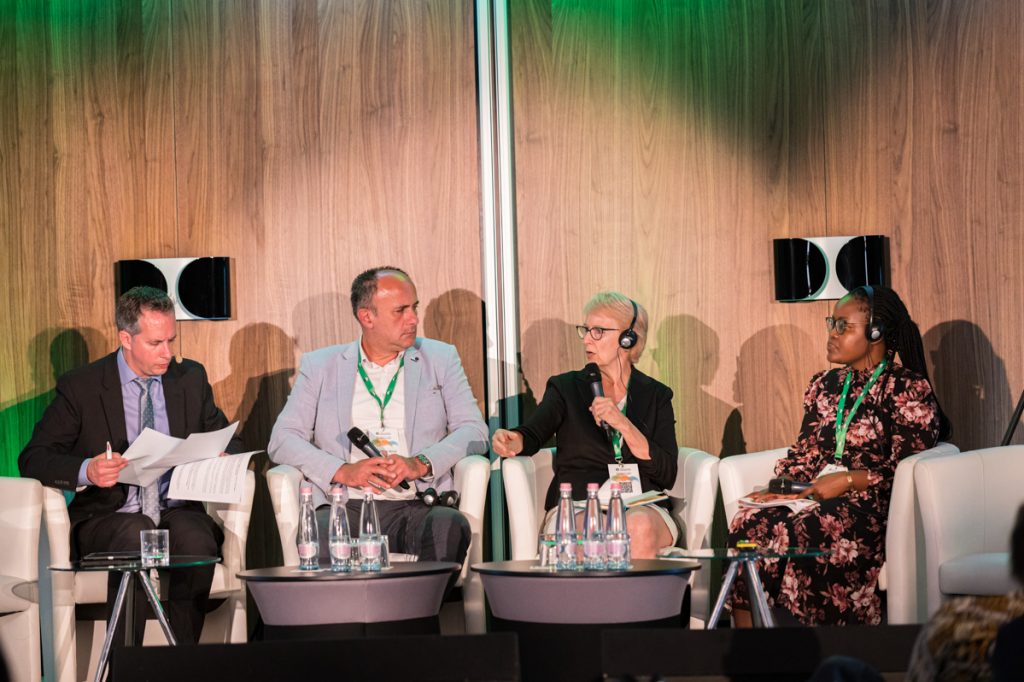
When it comes to the food systems’ transformation, which is now one of the highest priorities on the international agenda, innovation is a key driver, as a tool in the hands of farmers to improve their production patterns and support them in the achievement of sustainability: economic, social, and environmental.
In the framework of the opportunities provided by innovation processes, digital technologies have tremendous potential to achieve the disruptive change required in agriculture and rural development.
Internet of Things, Artificial Intelligence, Machine Learning and many others have entered the debate around innovation in agriculture with the potential to shape its sustainability in an effective way, helping farmers to adapt to or mitigate the effects of climate change or bringing about “smarter” use of natural resources, for example.
However, their deployment puts several questions on the table, regarding the affordability and utilisation of those technologies by all farmers and the support needed to ensure that this happens.
In the promise of digitalisation lies the challenge of building a system that puts farmers, from the smallest to the largest scale farmers, at the centre of the conception and scaling-up of appropriate technologies, to bridge the gap between technologies development and the effective use by farmers.
This session looked into innovative solutions and business models to enable a farmer-driven digital transformation of Agriculture.
It brought together farmers’ representatives – like Ruramiso Mashumba, a young farmer of Zimbabwe Farmers Union and Carmelo Troccoli, Director of Campagna Amica (Coldiretti), technology provider and stakeholders active in the innovation domain, such as Srdjan Krco, CEO of DUNAVNET, representing DEMETER Project and Julie Reynes, acting CEO of the Foundation for Food and Agriculture Research (FFAR)
Thanks to the moderation, the speakers linked together experiences and expectations helping the audience to better understand the main barriers and drivers to Smart Farming Technology (SFT) adoption.
Consultation – Farmers’ Perspectives on “Repurposing” Agricultural Support and Policy Reform
Hosted by the Just Rural Transition Secretariat, the informal dialogue involved the farmers’ audience attending this year’s #WFOGA, both in person and virtually.
Participants had the opportunity to share their perspectives and ideas for governments to repurpose agricultural policies that support farmers and farmers’ organisations to deliver better results for people, nature and the climate.
WFO 2022 General Assembly Opening Ceremony
The opening ceremony of the #WFOGA2022 took place in the enchanting Buda Castle.
“We are honoured that the Hungarian Chamber of Agriculture (NAK) could host this year’s WFO General Assembly – mentioned Balázs Győrffy, President of the Hungarian Chamber of Agriculture during his opening remarks. – “The great challenges of the 21st century – from population growth to climate change and epidemics – are all making people aware of the need to have enough food of sufficient quantity and quality to live safely. It is in all our interests to build a strong alliance across borders that can cope with these challenges and make its voice heard whenever decisions are taken on issues of importance to agriculture.”
Qu Dongyu, Director-General of the Food and Agriculture Organization (FAO) addressed the opening ceremony with a video message: “Let us continue to work together in an efficient, effective and coherent manner to lead the transformation of our agrifood systems for this decade and beyond,” stated the FAO Director-General, closing his speech on the relevant role played by family farmers in ensuring the sustainability of agrifood systems.
The high-level representatives of the Hungarian authorities joining the event included: Levente Magyar, Deputy Minister for Foreign Affairs and Trade; István Jakab, Vice President of the Hungarian Parliament and President of MAGOSz – Association of Hungarian Farmers and Farmers’ Cooperatives; István Nagy, Minister of Agriculture.
WFO President Theo de Jager took the occasion of the Opening Ceremony of the #WFO2022 General Assembly to honour Dr Agnes Kalibata, United Nations Special Envoy on Food Systems Summit, publicly awarding her, on behalf of the world farmers, for “her dedication and outstanding efforts to ensure that farmers were actively involved in the preparation of the UN Food Systems Summit, with a recognition of their central role to shape sustainable, resilient, fair, inclusive, diverse, and innovative food systems”.
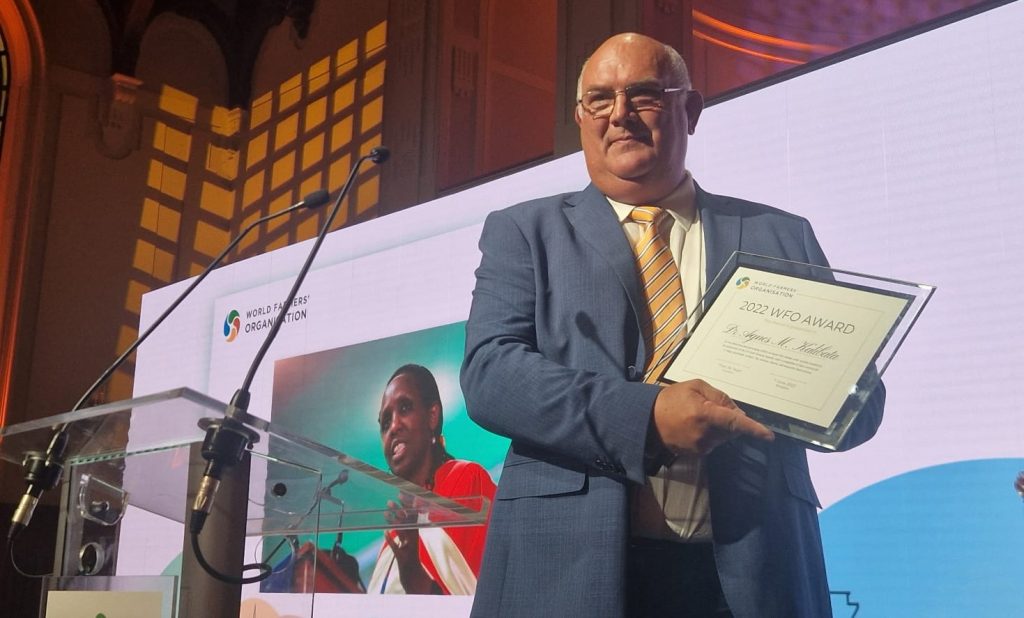
“Let me start by saying how excited but also how humbled I am by this award which I gladly accept. The UN Food Systems Summit was a great success, thanks to the World Farmers’ Organisation,” – Dr Kalibata said, “Let me take this opportunity to thank Theo de Jager for his leadership – I can testify you have brought the voice of farmers to every conference and every conversation I have been to.”
All the guests embraced Dr Kalibata final exhortation “Farmers must be at the center of the solutions we have to find locally, nationally and globally.”
